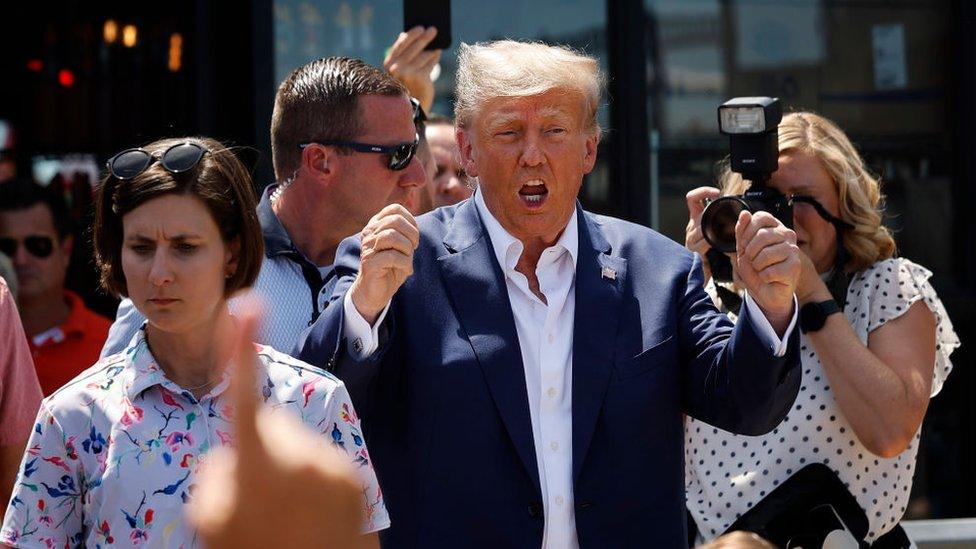Ramaswamy, DeSantis, Pence: Who came out on top at the Republican debate?
- Published
Watch: Candidates reflect on how they did during debate
The first Republican presidential debate was a rowdy affair that saw the eight candidates leap headlong into heated exchanges.
There were some who thought it would be boring without Donald Trump - the ultimate showman - but that was decidedly not the case. The former president may have been the life of the party during primary debates back in 2016, but the eight rivals who travelled to Wisconsin proved they could bring some excitement without his help.
Some candidates stood out from the pack, however - and some seemed to languish on the side-lines.
Here's a rundown of the winners and losers.
WINNERS
Vivek Ramaswamy: The man who never ran for public office - and didn't even vote for a president from 2004 to 2020 - simply dominated this Republican debate.
With a broad smile and a quick tongue, he frequently seemed to be the only candidate on the stage who was enjoying himself. That may partly be because this political novice has exceeded expectations, and is essentially playing with house money while he takes centre stage.
He easily fended off swipes from his fellow candidates, suggesting that Mr Christie was auditioning for a show on left-leaning news channel MSNBC and that Ms Haley was angling for spots on the board of defence contractors with her positions on Ukraine.
"I'm the only person on the stage who isn't bought and paid for," he said during a discussion of climate change - prompting cries of outrage from his rivals.
Ramaswamy: 'I was clearly the winner of this thing'
Time and time again, Mr Ramaswamy positioned himself as the outsider against a bunch of political establishment insiders. Many of his views - calling on Ukraine to cede territory to Russia, using military force to secure the US-Mexico border, and banning US companies from doing business with China - are well outside the political mainstream even within the Republican Party. But as Mr Trump demonstrated in 2016, even outlandish, impractical policy proposals can be effective in generating attention.
Mr Ramaswamy may not have the political fuel to challenge Mr Trump for the nomination, and he may not even want to, but the evening's debate ensures that he's going to continue to be a factor in this race in the months ahead.
Mike Pence: The veteran politician, who has served as a congressman, a governor and a vice-president, has a bit of fight left in him.
Although his presidential campaign has been sputtering - hated by Trump supporters and distrusted by Trump critics - his debate-stage experience served him well on Wednesday night.
He went on the attack early, swiping at Mr Ramaswamy's inexperience, saying, "Now is not the time for on-the-job training".
He offered a passionate, religion-based call for nationwide abortion limits. That likely won't play well in next year's general election. But it could help him win over evangelical Republicans, who can tilt the balance in states like Iowa and South Carolina, which play an outsized role in deciding the party nominee.
During the second-half of the debate, when discussion of Mr Trump came up, Mr Pence had the last word, saying he put the Constitution first on January 6, 2021 when he refused to throw out the election results at Mr Trump's behest. Several of his rivals even spoke out in his favour.
The fundamental challenges to Mr Pence's campaign remain, but for at least one night he showed why he was once considered by many conservative Republicans to be presidential material.
Nikki Haley: The former US ambassador to the UN has made a habit of surprising those who underestimate her. She has never lost a race for office, even when she was challenging more established Republican candidates for the South Carolina governorship.
On Wednesday night, she stood out by offering sharp criticism early of both Mr Trump and the Republican Party as a whole.
"Republicans did this to you too," she said when describing the massive US budget deficit. "They need to stop the spending, stop the borrowing."
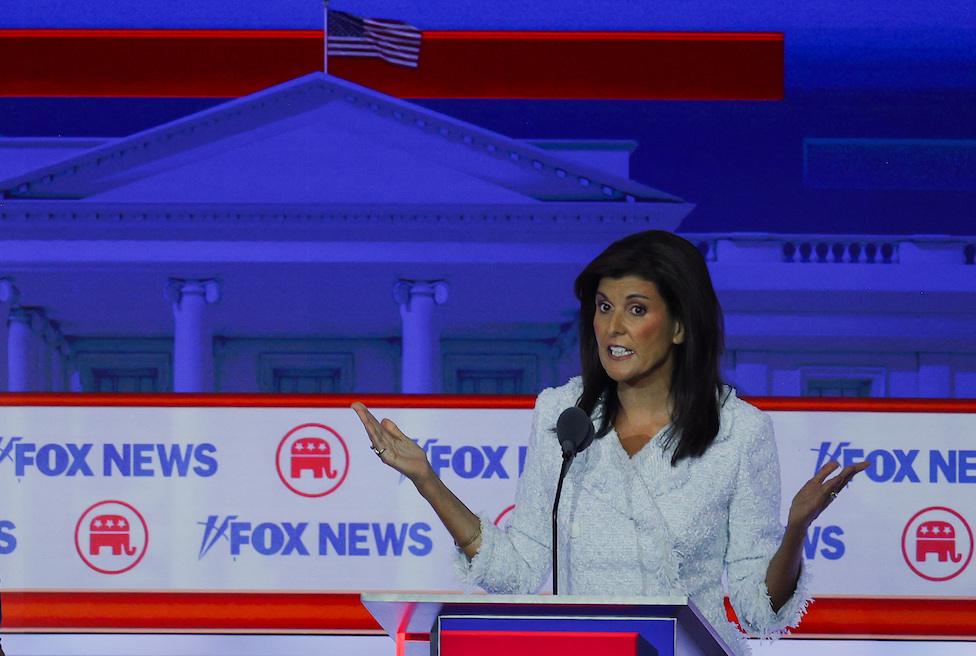
When the topic turned to the former president, she said Mr Trump was the "most disliked politician in America" - and warned the Republican Party will suffer because of it in the general election.
She also showed will for the fight. She scrapped with Mr Ramaswamy on continuing US aid to Ukraine, which she supports. And she clashed with Mr Pence on abortion, calling his demands for a national abortion ban unrealistic and politically damaging.
Even if she can't pull ahead in the pack this time around, her debate performance could position the 51-year-old for future presidential bids in election years not dominated by a former president.
MIDDLE OF THE PACK
Tim Scott and Chris Christie: Mr Christie did exactly what many expected him to. He took swipes at Mr Trump, had some choice lines targeting Mr Ramaswamy, and was generally feisty and combative.
He was also roundly booed when he was introduced, when he criticised Mr Trump, and when he took big swings at Mr Ramaswamy.
His choicest line came when he said the political neophyte "sounds like ChatGPT" - but that particular twist did nothing to ingratiate him with the crowd.
As for Tim Scott, his nice-guy attitude meant he frequently stayed above the fray during the most heated debate moments. That won't help him win over many voters, but it could burnish his credentials if he wants to be Mr Trump's vice-presidential pick.
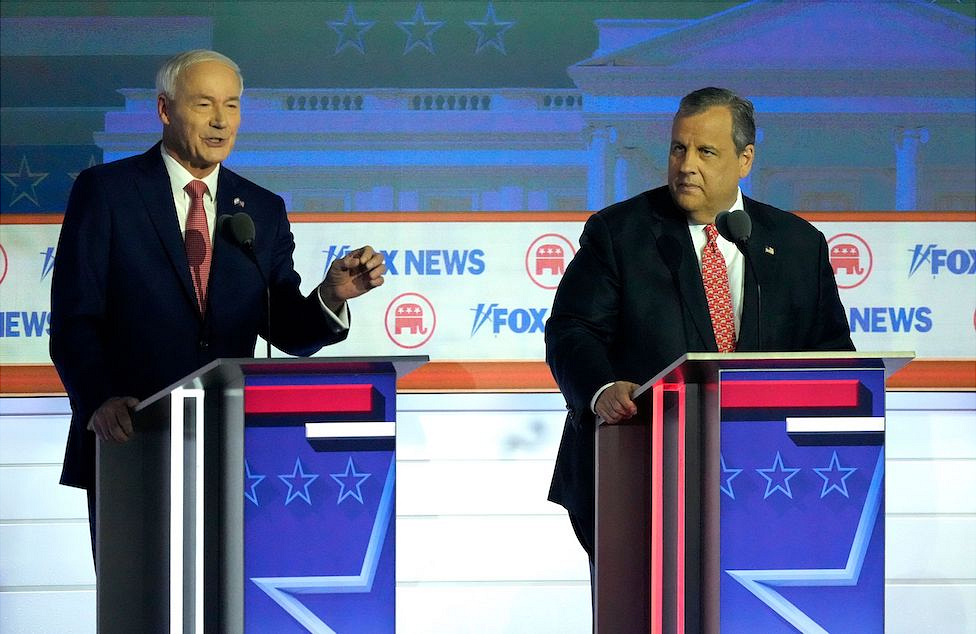
Asa Hutchinson and Chris Christie debate
LOSERS
Ron DeSantis: At the beginning of the year, the race for the Republican nomination seemed like it would be a two-man contest between Mr DeSantis and Mr Trump. Since then, the Florida governor has sagged in the polls.
If the rest of the Republican pack hasn't caught up to him yet, it may very well have him after this debate.
It wasn't a terrible performance - he had his moments, particularly when he spoke about his record of military service and his calls for more aggressive government policies to deal with the opioid epidemic.
He was on the side-lines for all the key moments of the debate, however. Mr Ramaswamy ran circles around him. Other candidates, like Mr Pence and Ms Haley, elbowed him out of the way on issues like abortion and US aid to Ukraine. He seemed on uneven footing when the topic turned to Mr Trump and his recent indictments.
This was not the kind of performance needed to close the gap with Mr Trump. The man who was once billed as the future of the Republican Party was simply a non-factor.
Asa Hutchinson and Doug Burgum: Former Arkansas Governor Asa Hutchinson was the last candidate to qualify for the Milwaukee debate. North Dakota Governor Doug Burgum paid his way onto the stage with a gimmick - offering enough people $20 gift cards if they donated $1 to his campaign.
Both candidates desperately needed to show that they deserved to be there, and both were mostly afterthoughts.
Mr Hutchinson's criticisms of Mr Trump seemed weak sauce compared to Mr Christie's more pointed attacks. And Mr Burgum's awe-shucks small-state conservatism never really stood out.
The qualification standards become more rigorous for next month's primary debate in California, and neither candidate did enough on Wednesday night to build the kind of support they will need to make another appearances on the debate stage likely.

Sign up for our morning newsletter and get BBC News in your inbox.

- Published24 August 2023
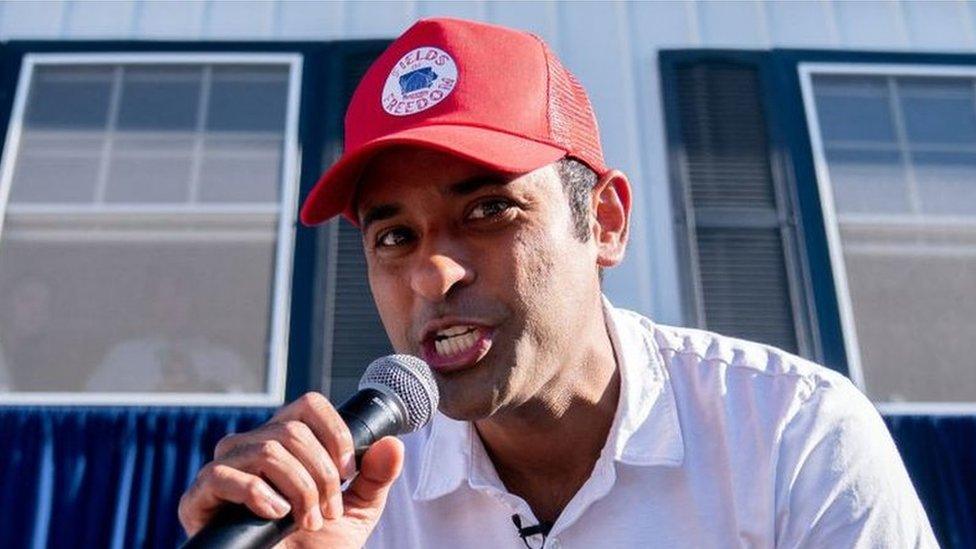
- Published23 August 2023
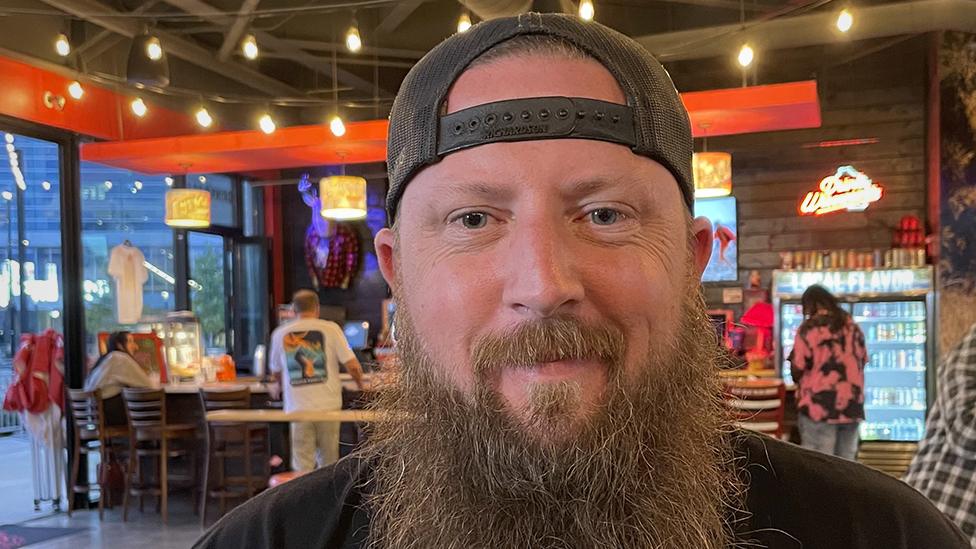
- Published22 August 2023
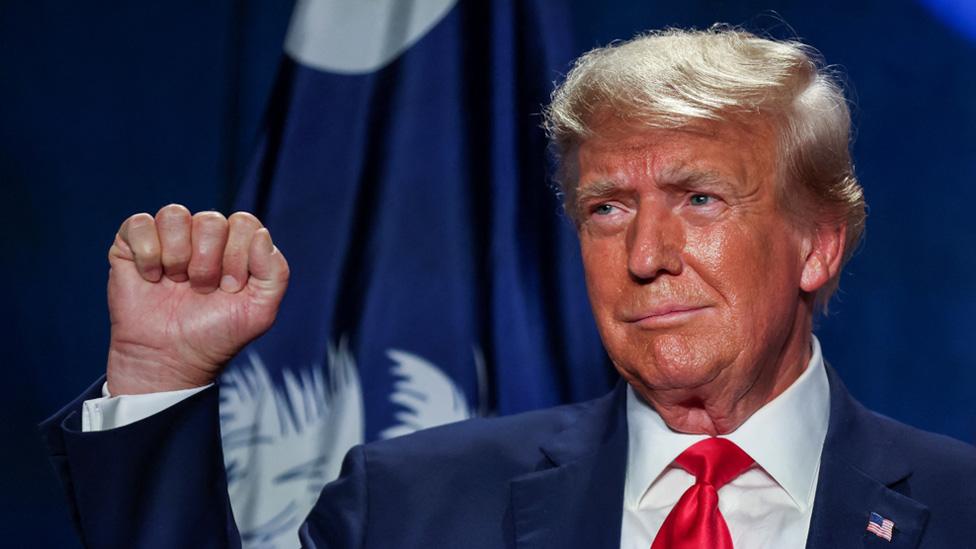
- Published16 August 2023
